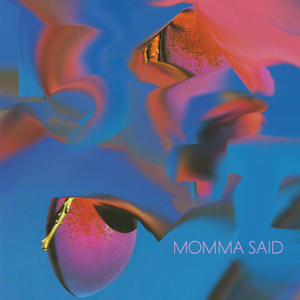Onsen Reflects on Violence Against LGBTQ+ Community With 'Momma Said'
“Momma Said” was originally written after the horrific shooting that took place at Pulse nightclub in Orlando, and has evolved in the five years since.

Los Angeles based indie artist Onsen is weaving his own intricate, experimental story of love and self-realization this Pride month with the brand new single "Momma Said." Written in the form of a Greek Tragedy, the song follows the tale of a young individual that identifies as gay, who faces rejection at home and finds his own identity in the outside world. "Momma Said" was originally written after the horrific shooting that took place at Pulse nightclub in Orlando, and has evolved in the five years since.
Drew Straus, aka Onsen, shares his experience that inspired "Momma Said": "Shortly after 11 pm on June 12, 2016, I was at a queer party in a downtown Los Angeles warehouse. A ripple went through the crowd as word was passed of a shooting at a gay nightclub in Orlando. In addition to the horror for the people at Pulse, there was a sense of fear that it could have been us. That this space where we all felt safe could become a nightmare."
"I wrote 'Momma Said' as a kind of delayed reaction to the many acts of violence against queer people that have occurred throughout my life. Over time, these stories along with those of people I know crystallized into a narrative that feels almost like a Greek tragedy. I imagine a gay kid being kicked out of his home and running away to the city. The first verse is more or less in his mother's voice telling him to leave. The second is his downfall in a place he finally feels safe. The Chorus is just that: a Greek choir singing for our runaway as he begs to be recognized for who he is. Momma Said is the most outwardly focused track on the album and you can sense the world creeping in sonically."
As we near the anniversary of the Pulse shooting, Onsen's music offers a perspective on a world that in some ways has changed and yet in so many, has stayed the same. It's a heavy reminder to spread love over violence.
Musically, "Momma Said" has a sound that calls back to aspects of other historical times of shifts and changes in our society, the like the 60s and 70s. Onsen adds, "There are elements of world music that I grew up listening to along with the Beach Boys and Brian Eno."
"Momma Said" will be part of a full-length album, Keeper, due out later this summer. The record features Onsen's previously released singles "Be There," "The March," "Golden Heart," "See Me Now," and "Charming Nights" which charted at #3 on KROQ's Locals Only and was featured on Sia's playlist of recommended new music. Keeper was co-produced by GRAMMY-nominated producer Brook D'Leau and has received praised from Flaunt, Nylon, American Songwriter, Atwood, Variance, Buzzbands and more.
Originally born in Boston but raised in Paris, with two shrinks for parents, Onsen pulls his inspiration from a variety of different influences. He's done everything from doing public policy for Google and working production in television, to exploring Peru, Bolivia, and Brazil in a 1982 VW Westfalia as a journalist writing on environmental issues and the rights of indigenous communities'. As an artist, he does all his own stunts on the new project, playing guitar, keys, bass, singing and producing. Onsen resides in Silverlake and is fluent in English, French, Spanish and some Portuguese.
Throughout his music, Onsen uses his personal experiences to examine the unusual world around us. With each of his tracks on Keeper, he explores a new singular experience, many related to love and loss in the queer world of Los Angeles.
"As a whole, Keeper take on a lot of queer themes," shares Onsen. "The love songs are addressing male partners. In some songs like 'The March' and 'Momma Said' that's explicit. In others, the lyrics don't mention a gender (since they're in the second person) but they take on experiences that are common to many queer people: self-doubt, longing, the intensity of a first love that is often delayed, the feeling after that of being forever changed, and eventually the tenderness you can have in love when you feel most yourself. That said many of those feelings are universal. I hope that no matter who listens to the record, they see a bit of themselves in it."
Comments
Videos

